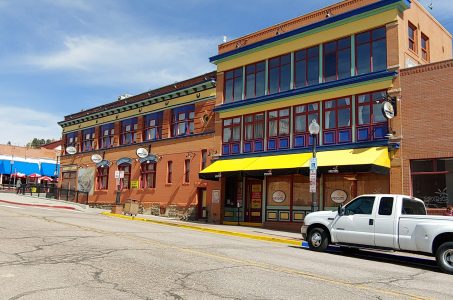Caesars, Penn National Among Best-Performing Stocks Since COVID-19 Market Bottom
Posted on: August 18, 2021, 09:38h.
Last updated on: October 5, 2021, 10:16h.
From its coronavirus-induced trough on March 23, 2020 through Aug. 17, 2021, the S&P 500 doubled, marking one of the swiftest bear-to-bull market shifts on record. A pair of well-known gaming equities are among the best-performing names since that market bottom.

Since the COVID-19 market bottom, Caesars Entertainment (NASDAQ:CZR) and Penn National Gaming (NASDAQ:PENN) are two of the top five members of the S&P 500 in terms of price appreciation. The pair are recent additions to the benchmark domestic equity gauge, joining it in March.
As of Aug. 17, Caesars returned 737 percent from its March 23, 2020 low, while Penn National surged 592 percent.
At a closing price of 4,479.71 on Monday, the S&P 500 officially doubled from its March 2020 pandemic-era low. All but seven stocks saw gains over that period, with the biggest winners split across a group of health-care and consumer discretionary names,” according to CNBC.
Gaming stocks reside in the consumer discretionary sector. But Caesars and Penn are the only casino operators among the top 10 S&P 500 names since the March 2020 bottom.
In fact, the Harrah’s operator is the second-best member of the index since March 23, 2020, trailing only Moderna (NASDAQ:MRNA). That may not be a fair comparison, because that biotech company is the maker of one the most-used COVID-19 vaccines. Its shares returned more than 1,300 percent since March 23, 2020.
Caesars, Penn Author Impressive Redemption Stories
During the darkest days of the coronavirus pandemic in early 2020, all domestic gaming companies endured multi-month shutdowns of their US venues. But Caesars and Penn were among the most savagely repudiated.
Shares of “old Caesars” and Eldorado Resorts — the company that eventually acquired Caesars for $17.3 billion — tumbled amid fears that a crimped credit market would not be open to the junk-rated suitor, stoking speculation the deal wouldn’t make it to the finish line.
The high-yield bond and leveraged loan markets all but froze in March 2020, as the coronavirus pandemic gripped riskier assets, stoking speculation that the banks would encounter difficulty in finding willing buyers for Eldorado and Caesars paper. Ultimately, the marriage creating the largest US casino operator by number of properties was consummated.
Though it wasn’t attempting to execute a merger, Penn found itself in a similar position, as market participants punished non-investment grade companies with large debt burdens across all sectors. The Pennsylvania-based gaming company slumped below $4 in March 2020. But it took just a year for the stock to race to $142, as investors flocked to the name as a play on the online sports betting boom.
Coronavirus Market Effects
Historically, the S&P 500 has needed about 1,000 trading days to double from a bear market bottom. But the coronavirus bounce took just 354 trading days, according to CNBC.
Of interest to investors in casino stocks is that the consumer discretionary sector is merely tied for fifth-best among the 11 sectors since March 2020. That indicates some gaming names are outperforming the broader consumer cyclical group.
Just seven S&P 500 members are in the red since the coronavirus market bottom, and one is a gaming equity: Las Vegas Sands (NYSE:LVS). That name was hampered by a surprisingly slow recovery in Macau — its largest market — and a lack of exposure to iGaming and sports betting.
Related News Articles
Most Popular
Mirage Las Vegas Demolition to Start Next Week, Atrium a Goner
Where All the Mirage Relics Will Go
Most Commented
-
Bally’s Facing Five Months of Daily Demolition for Chicago Casino
— June 18, 2024 — 12 Comments
















No comments yet